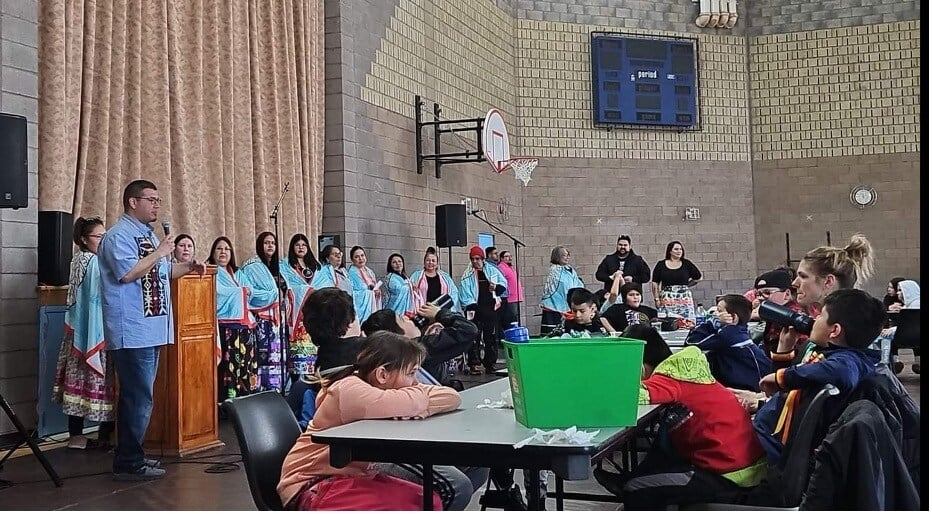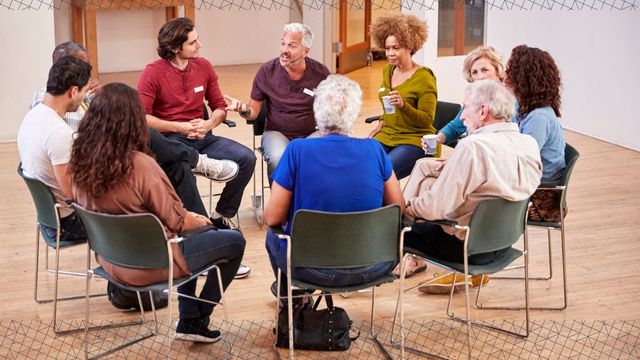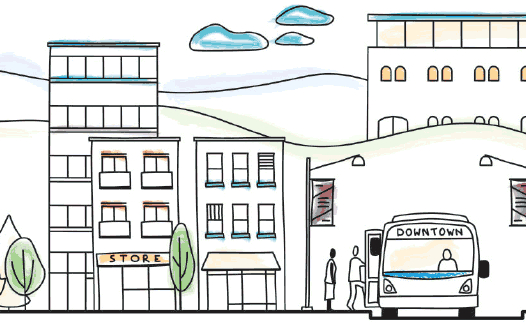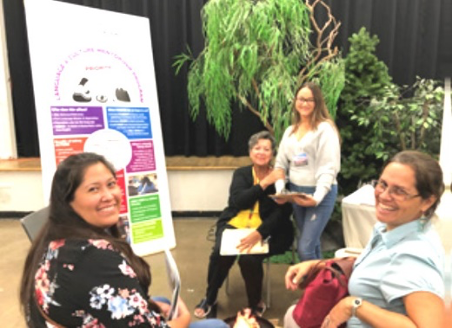The Intersectoral Fund
The Intersectoral Action Fund (ISAF) is a grants program by the Public Health Agency of Canada (PHAC), designed to bolster community capacity for intersectoral action on social determinants of health. The ISAF funds organizations addressing the societal, economic, legal, and political structures and norms that impact individuals and their behaviours. The program aims to enhance population health, reduce health inequities, and strengthen community resilience.
The 2022-23 ISAF funding cohort contained 13 projects. Each ISAF-funded project engaged diverse stakeholders – including community organizations, government agencies, local businesses, and individuals with lived experience – to collaboratively develop a common agenda and an action plan to address a pressing public health issue. This approach enabled the implementation of solutions for a range of complex health priorities while fostering long-term systemic change.
The Collective Impact (CI) Framework – a proven framework for multi-sector collaboration – served as the foundational model for 2022-23 ISAF funded projects. Each project required coordination across various sectors to tackle complex health challenges affecting health equity and well-being. The CI Framework’s five conditions – a common agenda, shared measurement, mutually reinforcing activities, continuous communication, and backbone infrastructure – facilitated the conditions for community action and implementation of meaningful intersectoral action.
Implementing innovative solutions demands creativity and courage. We commend funded projects for sharing their valuable experiences and insights for the benefit of all communities.
INTRODUCTION
Equitable access to care and housing are foundational principles of Canada’s social support systems. Yet for many newcomers, this ideal remains out of reach. This case study focuses on the Partnerships for better housing project led by Altered Minds Inc. (AMI), funded by the Public Health Agency of Canada’s Intersectoral Action Fund (ISAF). This project focused on supporting newcomers in Winnipeg, Manitoba with their housing needs. Specifically, the project set out to strengthen organizational capacity to deliver culturally safe and harm-reducing services to newcomers facing housing challenges.
AMI has long played a vital role in helping newcomers settle in Winnipeg. Its flagship initiative, the Entry Program, offers orientation sessions on local laws, services, and community resources. Bashir Ahmad, originally from Afghanistan and a key figure at AMI for over a decade, led the ISAF-funded project to explore and respond to the housing difficulties experienced by recent arrivals—particularly those from Ukraine and Afghanistan—amid a surge in immigration.
The project’s primary goal was to understand the housing-related barriers faced by newcomers who had been in Canada for less than two years. Through direct engagement with newcomers and partner organizations, the initiative sought to identify practical solutions using existing community resources. The project unfolded in two phases: a needs assessment and a community action planning process.
The needs assessment revealed four key categories of housing-related challenges:
-
Cost: Many newcomers spend up to 50% of their income on rent, especially families requiring larger units. A lack of awareness about available rental support programs compounds the issue.
-
Context (neighbourhood): Safety concerns are prevalent. Many newcomers are alarmed by the crime rates in downtown Winnipeg, which differ significantly from their expectations.
-
Unit conditions: Rental units available to newcomers often had suboptimal conditions. Many buildings in downtown Winnipeg are older and in need of repair.
-
Rental consistency: Newcomers frequently move due to the high cost or poor condition of their initial rental units, leading to a lack of stability.
Insight #1 | Complexity of Housing Applications for Newcomers
Many newcomers to Manitoba arrive with high hopes and optimistic expectations about life in Canada - particularly regarding housing. They often assume that finding a home will be straightforward: accessible, affordable, and in good condition. However, the reality is far more complicated. Upon arrival, they face a fragmented and confusing system of subsidized housing applications, which quickly leads to disappointment and frustration.
Manitoba has around 100 organizations offering subsidized housing, each with its own application process. It becomes a huge bottleneck for you to have to navigate through all those applications, each of which is different.
Bashir Ahmad, Researcher
Winnipeg has over 100 subsidized housing providers, with each operating their own unique application process. This means that newcomers are forced to navigate a maze of bureaucracy. This complexity not only overwhelms them but also deepens their housing insecurity. The time and effort required to understand and complete multiple applications can significantly delay access to stable housing – especially for those with limited English proficiency or unfamiliarity with Canadian administrative systems. As a result, many newcomers miss out on housing opportunities simply because the system is too difficult to navigate. This adds unnecessary stress during an already challenging transition period.
Insight #2 | Direct Engagement with Newcomers is Essential for Understanding Needs and Providing Support.
Engaging directly with newcomers through focus groups and interviews proved invaluable and provided stakeholders with first-hand insights about newcomers’ immediate needs, challenges, and misconceptions – particularly around housing. Direct engagement also served as a vital channel to share information about available resources and support systems, ensuring that those most affected by housing policies had their voices heard in decision-making processes.
Newcomers that we talked to had lot of misconceptions. Many did not have the support to know about the organizations and services that can help them through the application process.
Bashir Ahmad, Researcher
Insight #3 | The Importance of Community-driven Advocacy in Driving Policy Change
This engagement underscored the critical role of advocacy to decision-makers locally in driving policy change, especially in social housing. For advocacy to be effective, it must be ongoing, coordinated, and inclusive – bringing together newcomers, settlement agencies, community organizations, and government bodies to push for meaningful reform.
Educating newcomers about their rights and the resources available to them was equally important. Empowering newcomers with this knowledge enabled them to participate more actively in advocacy efforts and community initiatives. A well-informed newcomer community strengthens collective advocacy, helping to build a unified voice that can influence policies and improve housing access for all.
We want the voices of newcomers to be amplified. They experience the effects of our policies firsthand and their insights and suggestions should be prioritized. Amplifying their voices will benefit both them and the entire country.
Bashir Ahmad, Researcher
Direct engagement also highlighted the importance of advocacy for policy changes related to social housing. Existing advocacy initiatives, like the Right to Housing (R2H) Coalition, though not specifically focused on newcomers, are well aligned with the action items formed through the AMI-led project. The R2H Coalition was formed in 2006 as a coalition of individuals and organizations who raise awareness on issues regarding housing in Winnipeg and Manitoba, and advocate for government action. The R2H Coalition aims to address the critical shortage of affordable housing and ensure that policies reflect the real needs of the community. The outcomes of this advocacy work can critically support the needs of newcomer populations. Thus, advocacy efforts must not only be continuous and robust, but also amplified through the collaboration of various interested parties including newcomers, settlement agencies, and government bodies.
Insight #4 | The Importance of Collaboration and Community Support
This project highlighted the vital role of collaboration among key stakeholders – settlement agencies, government bodies, and ethno-cultural organizations – in addressing the housing challenges faced by newcomers. Joint action planning sessions proved instrumental in aligning efforts, sharing insights, and coordinating resources. These sessions fostered a unified approach, enabling stakeholders to tackle common issues more effectively.
Community support, particularly from established residents and ethno-cultural groups, was equally essential. These organizations offer practical guidance – such as explaining rental agreements, tenant rights, and application procedures – while also providing emotional and social support. Their efforts help newcomers feel welcomed and integrated into their new communities.
Community forums and peer support networks also emerged as powerful tools. They create spaces for newcomers to share experiences, seek advice, and build meaningful connections with others who have faced similar challenges. Strengthening these community ties not only helps ease the transition process but also fosters a sense of belonging.
Moreover, collaborative efforts pave the way for innovative solutions. By working together, stakeholders can create practical tools and supportive environments that empower newcomers to thrive in Canada.
Project Results and Impact
Insights and experiences from the AMI project generated several recommendations for strengthening housing support for newcomers above and beyond what was discussed above, and which are discussed in more detailed in AMI’s Community Action Plan.
Select Recommendations:
-
Offer enhanced pre-arrival orientation – Encourage settlement service organizations or programs to improve access to information to incoming immigrants before they arrive. This can better equip many newcomers with a comprehensive and realistic orientation about housing in Canada. Early access to this information empowers newcomers to set realistic expectations and better prepare for housing-related challenges. This should include clear explanations of rental processes; tenant rights and common challenges; detailed breakdowns of initial and ongoing housing costs; and practical guidance for navigating the housing market.
-
Streamline housing applications – Create a centralized, multilingual housing application system and registry to simplify the application process. A unified platform would help newcomers settle more easily into their new communities. Such a platform should also include employment and language training services and offer multilingual support.
-
Explore technological solutions – Develop a user-friendly mobile app tailored to newcomers’ housing needs. Such tools can reduce confusion and stress, making the housing search more manageable and accessible. Key features should include a cost calculator for budgeting, language translation tools, and a community forum for peer support and information sharing.
-
Increase awareness of support programs – Use targeted outreach, multilingual materials, and partnerships with settlement agencies to ensure newcomers are informed about existing housing support services or organizations, such as the Manitoba Safe Housing Program and the Manitoba Human Rights Commission.
-
Strengthen partnerships – Promote collaboration among settlement agencies, government bodies, and community organizations, as unified efforts lead to more effective and responsive housing solutions. Stronger partnerships can improve coordination of housing initiatives, enable innovative newcomer-focused programs, and leverage shared resources and expertise.
Conclusion
The AMI Project made significant progress in identifying and addressing the housing needs of newcomers in Winnipeg. This project has brought to light the critical challenges – including systemic barriers – that limit access to safe, affordable housing for newcomers.
The project’s influence extends beyond Winnipeg, offering valuable lessons and scalable strategies for communities across Canada. Its focus on policy advocacy, community collaboration, and technological innovation sets a strong precedent for addressing newcomer housing challenges nationwide.
The Altered Minds Inc. project has laid a strong foundation of partnerships to create a more inclusive and responsive housing system for newcomers, moving us closer to creating a more equitable and welcoming Canada for all.

Altered Minds Inc. (AMI) would like to thank the leadership and staff from partner organizations as well as the many individuals whose input contributed to the success of this project. We would also like to acknowledge the Public Health Agency of Canada for the funding they provided to make this project possible.










%20(1).jpg)





